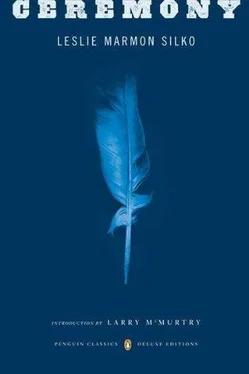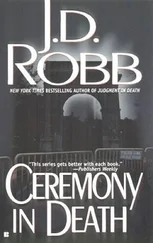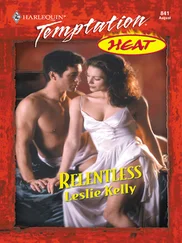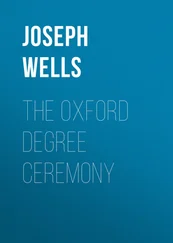He crouched between the boulders and laid his head against the rock to look up at the sky. Big clouds covered the moon, but he could still see the stars. He had arrived at a convergence of patterns; he could see them clearly now. The stars had always been with them, existing beyond memory, and they were all held together there. Under these same stars the people had come down from White House in the north. They had seen mountains shift and rivers change course and even disappear back into the earth; but always there were these stars. Accordingly, the story goes on with these stars of the old war shield; they go on, lasting until the fifth world ends, then maybe beyond. The only thing is: it has never been easy.
They heaved the body into the trunk and slammed the trunk lid and car doors shut. The red taillights shrank into the distance; the chalky ring of ashes merged into the moonlight. The wind gusted across the tire tracks and imprints of human shoulders and hands; and there was nothing left but broken bottles and a black mark on the ground where the fire had been.
He would go back there now, where she had shown him the plant. He would gather the seeds for her and plant them with great care in places near sandy hills. The rainwater would seep down gently and the delicate membranes would not be crushed or broken before the emergence of tiny fingers, roots, and leaves pressing out in all directions. The plants would grow there like the story, strong and translucent as the stars.
His body was lost in exhaustion; he kept moving, his bones and skin staggering behind him. He dreamed with his eyes open that he was wrapped in a blanket in the back of Josiah’s wagon, crossing the sandy flat below Paguate Hill. The cholla and juniper shivered in the wind, and the rumps of the two gray mules were twin moons in front of him. Josiah was driving the wagon, old Grandma was holding him, and Rocky whispered “my brother.” They were taking him home.
The creosote and tar smell of the railroad tracks woke him from the dreaming. The cinders made hollow crunching noises under his boots. He had come a long way with them; but it was his own two feet that got him there. He stepped high over the steel rails and went down the cinder-bank roadbed toward the river. When he felt the dampness of the river, he started running. The sun was pushing against the gray horizon hills, sending yellow light across the clouds, and the yellow river sand was speckled with the broken shadows of tamaric and river willow. The transition was completed. In the west and in the south too, the clouds with round heavy bellies had gathered for the dawn. It was not necessary, but it was right, and even if the sky had been cloudless the end was the same. The ear for the story and the eye for the pattern were theirs; the feeling was theirs: we came out of this land and we are hers.
In the distance he could hear big diesel trucks rumbling down Highway 66 past Laguna. The leaves of the big cottonwood tree had turned pale yellow; the first sunlight caught the tips of the leaves at the top of the old tree and made them bright gold. They had always been loved. He thought of her then; she had always loved him, she had never left him; she had always been there. He crossed the river at sunrise.
Hummingbird and Fly thanked him.
They took the tobacco to old Buzzard.
“Here it is. We finally got it but it
sure wasn’t very easy.”
“Okay,” Buzzard said
“Go back and tell them
I’ll purify the town.”
And he did—
first to the east
then to the south
then to the west
and finally to the north.
Everything was set straight again
after all that ck’o’yo’ magic.
The storm clouds returned
the grass and plants started growing again.
There was food
and the people were happy again.
So she told them
“Stay out of trouble
from now on.
It isn’t very easy
to fix up things again.
Remember that
next time
some ck’o’yo magician
comes to town.”
At the center of the kiva, old man Ku’oosh was poking kindling into the potbellied stove. The new adobe floor was still curing and the hairline cracks were not yet filled with plaster. The whitewash was only partially completed, and the kiva murals were veiled under the white clay wash, not yet repainted for the winter ceremonies. The old men nodded at a folding steel chair with ST. JOSEPH MISSION stenciled in white paint on the back. He sat down, wondering how far the chair had gone from the parish hall before it came to the kiva. He looked at them sitting on the wooden benches that went all the way around the long kiva. They nodded at him, and when Ku’oosh was satisfied with the fire he joined them. In the southwest corner there were boxes and trunks with tarps pulled over them to protect them from uninitiated eyes.
It took a long time to tell them the story; they stopped him frequently with questions about the location and the time of day; they asked about the direction she had come from and the color of her eyes. It was while he was sitting there, facing southeast, that he noticed how the four windows along the south wall of the kiva had a particular relationship to this late autumn position of the sun.
A’moo’ooh, you say you have seen her
Last winter
up north
with Mountain Lion
the hunter
All summer
she was south
near Acu
They started crying
the old men started crying
“A’moo’ooh! A’moo’ooh!”
You have seen her
We will be blessed
again.
At noon one of old Grandma’s grand-nieces brought Ku’oosh two lard pails. The steam from one smelled like red chili stew; the other was full of oven bread and pieces of fried bread. They passed around the pail of stew, using pieces of bread to scoop out the meat and to soak up the chili. When they had finished, he followed them to the back of the kiva where the gourd dipper floated on top of the water pail; he drank last, and after he drank, Ku’oosh poked at the fire and dropped the dipper into the flames.
When the sun was dropping near the center of the west window, they stood up. They were going home to rest and eat supper; they would be back later, after dark, old man Ku’oosh told him. He could have water, but no food; he was not to leave the kiva. Ku’oosh showed him an old enamel chamber pot with a lid. He said to drink the water cupping it in the hands.
They unraveled
the dead skin
Coyote threw
on him.
They cut it up
bundle by bundle.
Every evil
which entangled him
was cut
to pieces.
They found Harley and Leroy together in the big boulders below the road off Paguate Hill. The old GMC pickup was crushed around them like the shiny metal coffin the Veterans Office bought for each of them. In that way it was not much different than if they had died at Wake Island or Iwo Jima: the bodies were dismembered beyond recognition and the coffins were sealed. The morning of the funeral an honor guard from Albuquerque fired the salute; two big flags covered the coffins completely, and it looked as if the people from the village had gathered only to bury the flags.
Auntie talked to him now the way she had talked to Robert and old Grandma all those years, with an edge of accusation about to surface between her words. But after old man Ku’oosh had come around, her eyes dropped from his face as if there were nothing left to watch for. But she said that now the women at Church came to her privately, after mass or before the bingo games, to ask her how she had managed all those years to face the troubles which had been dropped into her lap. And she remarked to old Grandma, dozing beside her stove with the dial turned all the way to HIGH, and to Tayo who was oiling his hunting boots: “I tell them, ‘It isn’t easy. It never has been easy,’ I say.”
Читать дальше












